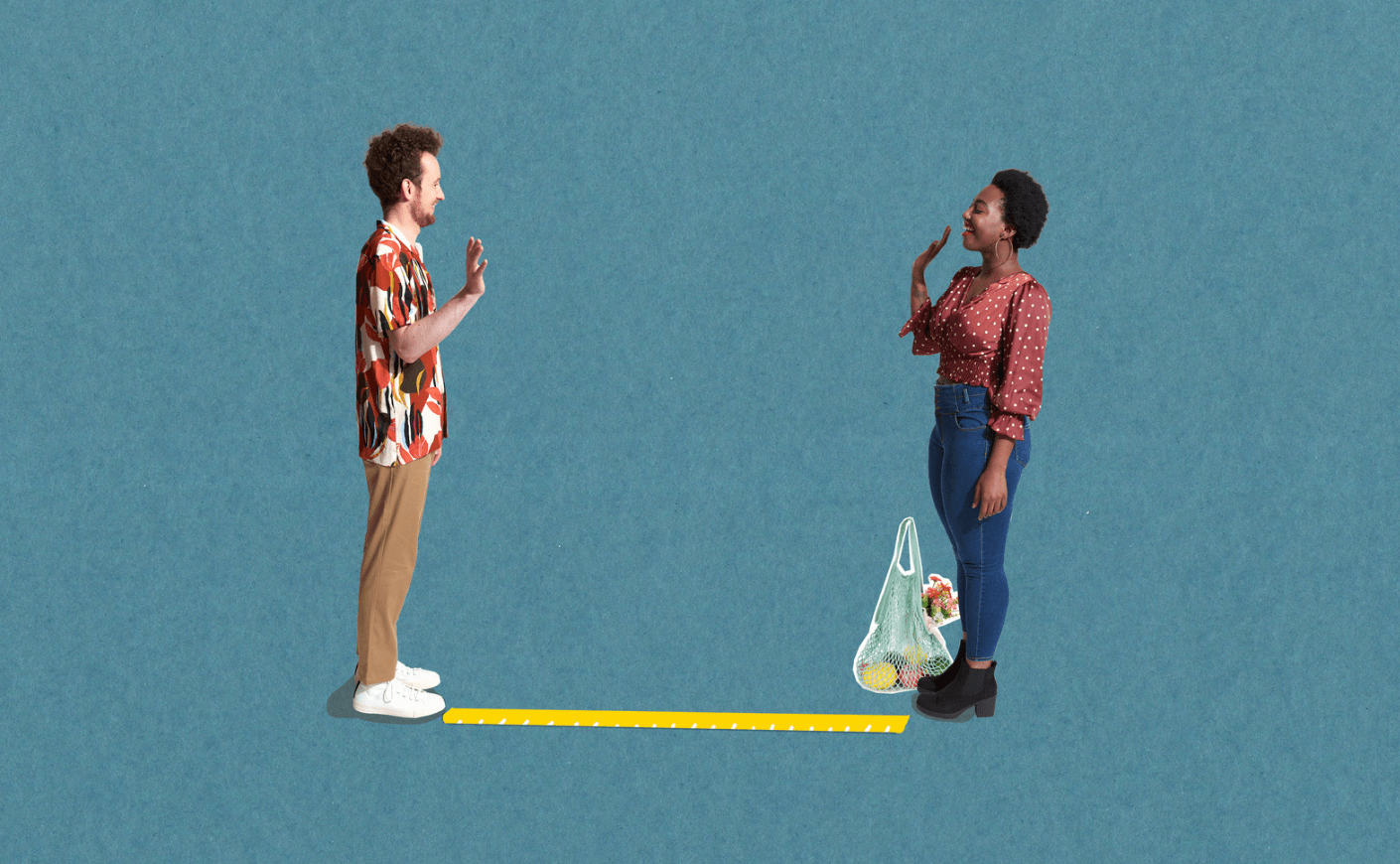There are lots of stressful factors weighing on us right now amid this global pandemic: health, our finances, the future… the list goes on. But if there’s something that Gretchen Rubin, author of The Happiness Project, The Four Tendencies and more knows, it’s that happy people might be more likely to do something about the world’s woes. In other words: Finding light during dark times is really important to our collective future.
We asked Gretchen to weigh in on a topic that’s been on all of our minds: how to cope with a pandemic that seems never-ending. Today, Rubin weighs in on how we can still find some happiness — while social distancing from many of our loved ones.
OK, it’s time for a quick “Happiness 101”: How do you even define happiness? What are the most basic things you’ve learned about it?
Gretchen Rubin: I really don’t define it, because I think you can get very caught up in this question of, “Is [this emotion] joy or is it happiness? Is it peace? Is it satisfaction? Is it bliss? Is it hedonic well-being?” And there’s no one-size-fits-all solution for happiness. We can each only build a happy life on the foundation of our own nature, temperament, values, and interests.
But during this difficult time, we can try to be as happy as we can be under the circumstances. You can take control by getting enough sleep, making sure that you eat well, are exercising in some way, and aren’t wearing yourself out. Your physical experience is always going to influence your emotional experience. Overall, ancient philosophers and contemporary scientists agree that relationships are key to a happy life. We need to feel like we belong and have intimate bonds.
But given that relationships are so important to happiness, how can we cope when we’re unable to see the friends and family members who make us happier?
Right now, everybody’s struggling. So there’s comfort in knowing that we’re all socially distancing because we care about each other. Coming together with other people can boost morale, but right now , that’s exactly what we’re not supposed to do.
So with our normal social patterns being disrupted, we need to mindfully either recreate or reinvent social connection.
What are the most effective ways to recreate social social connection?
If you don’t already have one, start a group text with your friends, or use apps like House Party or Zoom. We can take notes from different generations, who really do use social media differently to connect.
My teenager uses Snapchat a lot with her friends and really likes that as a tool. And my older daughter is doing voice memos through texts. I’ve always said, “I don’t want to take the time to listen, I just want to read it.” But she says, “Everybody has time now. And it’s nice to hear other people’s voices.”
And then there are some people connecting through video games or virtual book groups. I’ve heard of people doing a virtual St. Patrick’s Day party where they all got dressed up in green.
Is looking at social media just as effective as getting that direct digital connection, or do you think it’s better to reach out directly?
I think direct communication is best, but I do think that knowing what everybody’s up to is just fun and lightweight. And it can bring a sense of comfort to know that everybody’s going through this.
People love familiarity and mastery, but they need novelty and challenge, and it’s going to be hard to find that when we’re not out and about doing things. I think social media can play a role in that. Obviously, it can be negative and can kind of get people riled up. But it can also be a wonderful source of humor, knowledge, and a treasure trove of book, podcast, and TV recommendations.
You’ve written that happiness, especially in our culture, can be seen as self-indulgent. This is an especially sensitive, turbulent time for many people. What’s the importance of happiness right now?
Research shows, and I think common experience confirms, that when people are happier — they’re actually more likely to think about the world’s problems. Happier people volunteer more, they give away more money. They’re more likely to vote. Sometimes people say if you want to be happy, all you should do is drink margaritas on the beach. But actually happy people want to do things like distributing malaria nets.
We’re much more likely to serve the world if we come from a place of happiness ourselves.
So how can people who are in the position to give back while we’re social distancing?
Support people whose jobs are at risk. If you can afford to pay workers, like a dog walker, even when they’re not working, that’s a great way to give back.
And research suggests that ordering food is safe, and it certainly supports a lot of workers and businesses whose livelihoods are threatened. You can also help out elderly neighbors and family members with grocery runs. Ultimately, one of the best ways to make ourselves happiest is to contribute to somebody else’s well-being.









